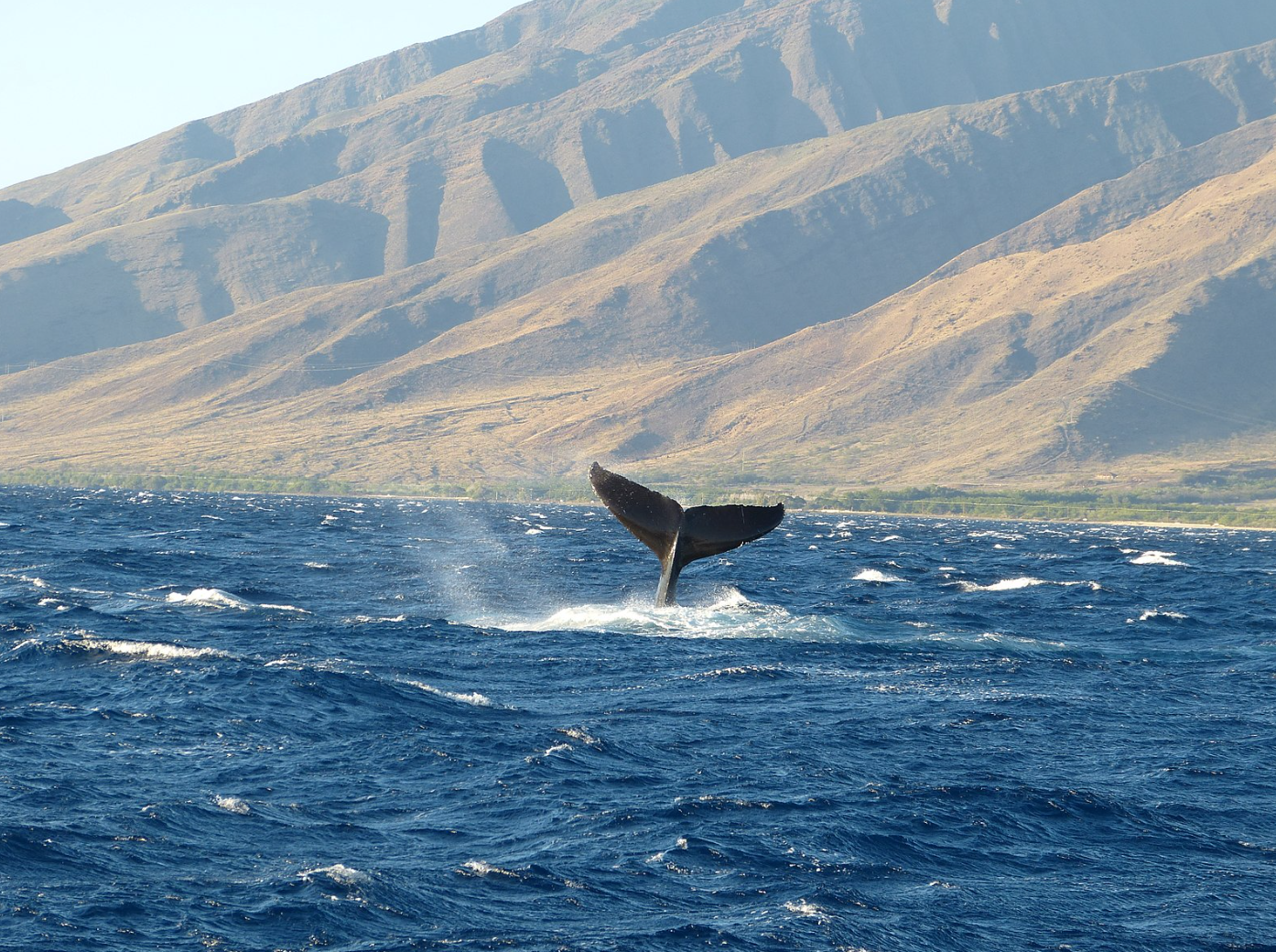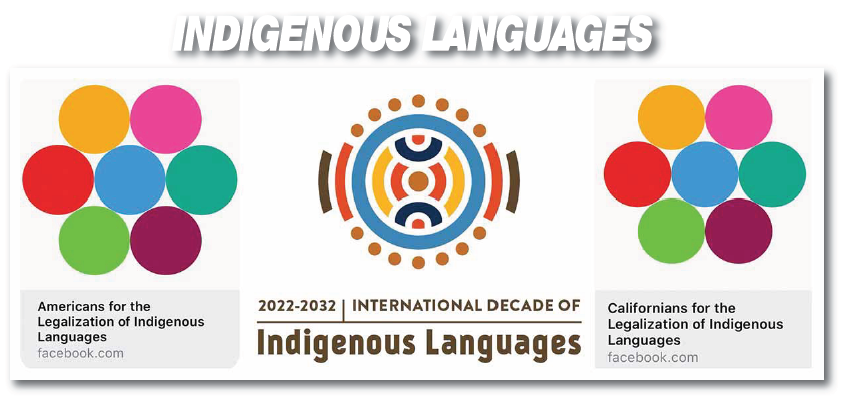
Photo: Whale Watching on Maui, by James Brennan of Molokai, Hawai'i, Wikimedia
“He huewai ke kanaka na Kāne.” (“Man is Kāne’s living water gourd.”) Uniting all forms of life existing in its hydrologic cycle from mountain top to the oceans, “wai” is the Hawaiian word for fresh flowing water, an essential source of life (“ola i ka wai”, life-giving water) considered to be both sacred, belonging to Kāne (also the god of agriculture), and responsibility for its proper stewardship shared by all but its purity regulated by priests. To preserve its purity, human and animal interaction with wai was restricted near its sources in higher elevations in the watershed to exclude in this realm of the gods bathing, farming, and animal husbandry. Wai indicates the Hawaiian principle of wealth(“waiwai”, used in reference to prosperity and abundance) and its proper management, the foundation of Hawaiian laws.
Dominance of foreign language and secular western influences resulted in the commodification of fresh flowing water, resulting in a cultural shift away from traditional spiritual practices associated with wai, nevertheless indigenous Hawaiians also recognized their values in many of the religious writings brought by American missionaries, such as in ʻEzekiʻela: “Eia hoʻi kēia, ʻo nā mea a pau e ola ana, a e ʻoni ana, ma nā wahi a pau a ka muliwai e hiki aku ai, e ola nō ia; a he nui auaneʻi ka lehulehu o nā iʻa, no ka hiki ʻana o kēia mau wai i laila, no ka mea, e hoʻōla ʻia nā wai; a e ola nā mea a pau kahi e hiki aku ai ka muliwai.” (Ezekiel 47:9 — “And it shall be that every living thing that moves, wherever the rivers go, will live. There will be a very great multitude of fish, because these waters go there; for they will be healed, and everything will live wherever the river goes.”)

